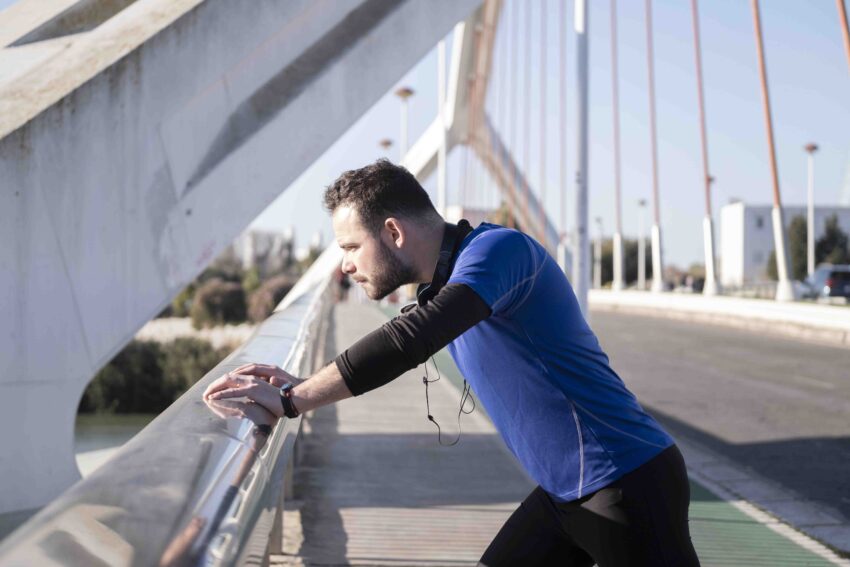How to reduce stress
Stress has almost become an unavoidable reality of life in today’s world. It is normal to experience some stress, but too much can be harmful to our mind and body. The good news is that exercise is a simple, yet powerful way to reduce stress. Exercise not only improves your mood, it can reduce anxiety and help you sleep better plus countless other benefits. In this article, we will discuss How to Reduce Stress with the help of exercise.
How Does Stress Relate to Exercise?
The relationship between physical activity and stress has to be explored, before moving forward to learn how to reduce stress and get benefits from exercise. Stress has a variety of impacts on physiological changes in the body, specifically the release of hormones such as “cortisol” and “adrenaline”.
In today’s world, much of our stressors often come from mental and emotional sources, leaving us feeling tense and trapped. Physical activity is one of the positive points for the question of many people’s how to reduce stress. Exercise releases endorphins (happiness hormones) that can naturally boost your mood.
Endorphins bind to the receptors in your brain, reducing the feeling of pain and triggering a positive feeling in the body. Since exercise can lead to reduced levels of cortisol, the stress hormone; Hence making exercising a solution in decreasing your anxiety.
The Science of How Exercise Reduces Stress
Research supports that exercise increases the release of natural neurotransmitters which include “dopamine and serotonin”, both important for a balanced mood. It even enables neurogenesis – the process of creating new brain cells, especially in regions related to memory and learning.
These outcomes may contribute to better understanding and better memory processing and decrease your stress response (that is how you perceive or respond to a situation).
Additionally, physical activity boosts blood flow to the brain and carries more oxygen and nutrients. Therefore, it plays a key role in enhancing concentration and mental clarity. This is especially good in times of high stress when it can be hard to focus or think sensibly.
Exercise is a natural sleep booster; good sleep helps you to reduce stress. Good sleep is absolutely necessary for mental and physical health, as it gives the body time to repair and update itself.
Different kinds of physical activities that reduce stress
All Exercises are not equal in reducing stress. Certain types of physical activity are better at beating stress than others. These types of exercises have been proven to be especially helpful:
Aerobic Exercise:
Getting your heart pumping with aerobic exercise can lower cortisol and release endorphins. Aerobic exercise also improves cardiovascular fitness, which is typically affected by repeated exposure to sporadic stress (stress experienced on many days). Some aerobic exercises are (Jogging, burpees, high knees, stairs, jumping jacks, and squats).
Yoga:
Studies have proven that yoga helps not just fight to reduce stress but also lessen anxiousness. Yoga helps to calm the mind and body, it promotes flexibility, strengthens your muscles, etc.
The deep breathing techniques practiced in yoga are also beneficial, as they help to calm the nervous system and alleviate stress. Read out complete article about Yoga.
Strength training:
Perform weight lifting and resistance exercises to reduce stress. These exercises will help to build muscles, increase bone density, and boost metabolism. Strength training requires concentration, which can help calm anxiety caused by uncertainty and worries about the future
Tai Chi:
Tai chi is an ancient Chinese martial art that consists of slow, methodical movements and deep breathing. It is frequently called “meditation in motion.
For centuries, this timeless discipline has been gentle, flowing postures with your breath to reduce stress and improve balance as well as overall health. It is especially good for older people or those with mobility problems, enabling them to enhance balance and well-being with ease.
Mindful Walking:
Walking is one of the most natural things you can do for exercise. It requires little or no extra effort but offers numerous benefits. There is also good evidence that spending time wandering around in nature, is what the Japanese call “forest bathing/ shinrin-yoku”.
Walking decreases cortisol levels and improves relaxation. Any little walk even a block could be enough to increase your heart rate, relax tension, and reduce stress in today’s world.
Pilates:
Similar to yoga focuses on core strength, flexibility, and controlled movements. It is a fantastic way to reduce stress and prevent bad posture associated with stress. Most notable is the focus on mindful breathing is Pilates which can help to stabilize and control your mind, warding off stress.
Developing a Stress-Reducing Workout Routine
If you want to reduce stress through physical activity, then you must start a routine that suits your lifestyle and interests. Exercise is just like the “REST OF LIFE” & it should be done with consistency for all ages. Below are some ideas to build a healthier, stress-busting fitness routine:
- No matter if you are a beginner start with small steps. For instance, you might start with a 10-minute walk each day and then improve your workout duration or intensity day by day.
- Find an Activity You Enjoy; The best exercise is the one you enjoy doing. Pistol, squat, dance, swim, go for a hike, and start playing some kind of sport you also enjoy. This way, it will be easy to stick to your routine.
- Do it with a friend: Working out with a friend or group class brings more fun and gets everyone else involved. Interacting with your friends or close ones is a great way to reduce stress and to improve your mood.
- Incorporate Mindfulness; Being present and integrating mindfulness can amplify the stress-relieving potential of an exercise activity. A few examples are paying attention to your breath while running or being present as you actively lay down on a yoga mat.
- Pay Attention to Your Body; If you feel overwhelmed, it is really important to listen to what your body says and not allow yourself too much output. Pushing yourself can exert more pressure and cause burnout. Listen to your own body and tailor-make exercise schedules accordingly.
- Create Realistic Goals: Achievable goals can keep you excited and stress down. Instead of making huge and tricky goals focus on mini-goals that help to complete your fitness goals and help to reduce stress.
- Take the time to Celebrate Your Progress: Acknowledge your wins no matter how small they may be. Your confidence gets boosted, and you feel a sense of accomplishment which helps to reduce stress.
Physical Activity -Part of a Whole Approach to Reduce Stress
Physical activity is a powerful way you can deal with stress, but it must come along with other techniques in systematic ways. Examples of this kind of holistic system might include activities like meditation, deep breathing exercises proper dieting and nutrition, sufficient amount of sleep (especially during the night), and maybe even some time management strategies. In doing so, you can reduce stress and facilitate low-stress living with a balanced & healthy lifestyle.
It is also key to consider that what works for one person in their battle with stress and exercise may not be helpful for another. We all need to figure out the combination of activities (and resources) that works best for us, no matter how much time it takes. Take your time with it and remember, reducing stress is a journey not an overnight destination.
Conclusion
Thus, physical activity is an efficient mode to reduce stress and for a healthy lifestyle. Whether it be something high-impact on stress like running, or more meditative such as yoga the most important thing is finding an activity that you find pleasure and solace in doing regularly.
Moving your body regularly, no matter how you choose to do it will help to reduce stress and improve mood and quality of life. Don’t forget, the most important part is taking that first step… Then your brain and body will thank you later!


